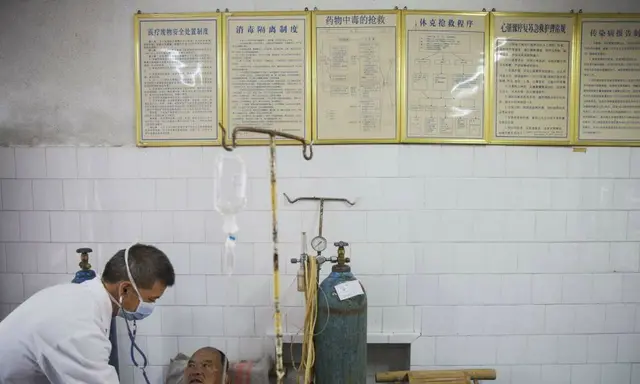For decades, working as a public hospital doctor was considered an “iron rice bowl” job – a career with a government salary guaranteed until retirement.
Though not lucrative, the positions came with a good pension, social welfare benefits such as housing and a promising promotion track.
Now the bowl is about to be broken. The Ministry of Human Resources and Social Security has announced it is studying hiring practices in semi-government institutions such as public hospitals and universities.
On the mainland, the government decides how many people it needs to employ in senior positions at such facilities and hires are made according to the quota, regardless of actual staffing needs. Funding for specific hospitals is also decided by the quota.
The approach creates inefficiencies and the ministry aims to shift all such iron rice bowl jobs, including those of public hospital doctors, to contract positions.
Analysts said the move was a step in the right direction and should help private hospitals attract talent.
“The policy is definitely good news for private hospitals,” said Cai Jiangnan, a professor of medical policy and management at China Europe International Business School. “It will take a long time for the scrapping of the headcount quota system to make a big difference. Private hospitals must catch up with public ones in other benefits, but it is a step in the right direction.”
Doctors at public hospitals have a better chance to advance their careers and gain coveted academic titles. Pictured, the First Affiliated Hospital of Zhengzhou University in Henan province. Photo: Reuters
Compared to their colleagues at private facilities, doctors at public hospitals have a better chance to advance their careers and gain coveted academic titles, as well as higher social status.
Gong Xiaoming, a gynaecologist who left the prestigious Peking Union Medical College Hospital to start his own practice, said he expected more doctors to now follow suit – but not immediately. “The stable jobs and incomes of the headcount quota system are still very attractive to most doctors, especially those who are not well known or at [famous] hospitals,” Gong said.
A two-year study by the World Bank, the World Health Organisation and three central government agencies found reforms would lead to more flexible labour policies and efficient management in the health care sector.
The study advised Beijing to delink health workers’ employment benefits from the quota system.
In June last year, Shenzhen became the first city to pledge to scrap the quota system and put all staff on contract.
Li Chuang, an official in charge of medical reform at the municipal health and family planning commission, told The Beijing News the city would move away from funding by quota.
Budgets would instead be based on a set of factors such as the quantity of medical service, the complexity of procedures performed, the scientific research standard and the ratio of administrative posts to medical staff.
(SOUTH CHINA MORNING POST)
 简体中文
简体中文

